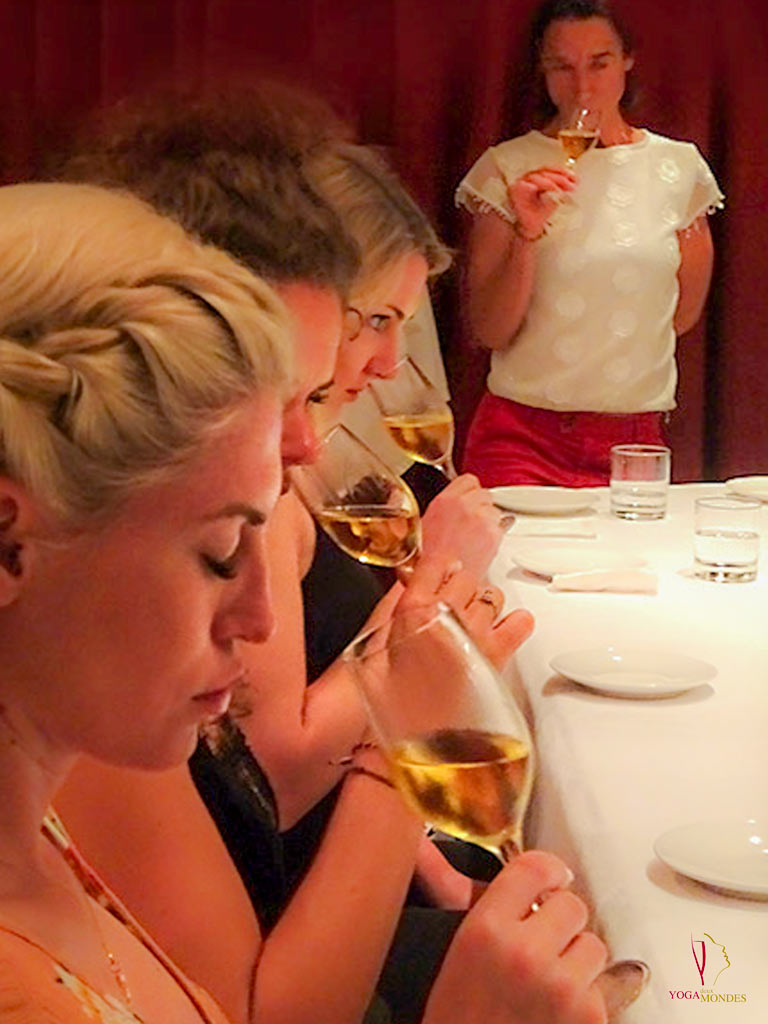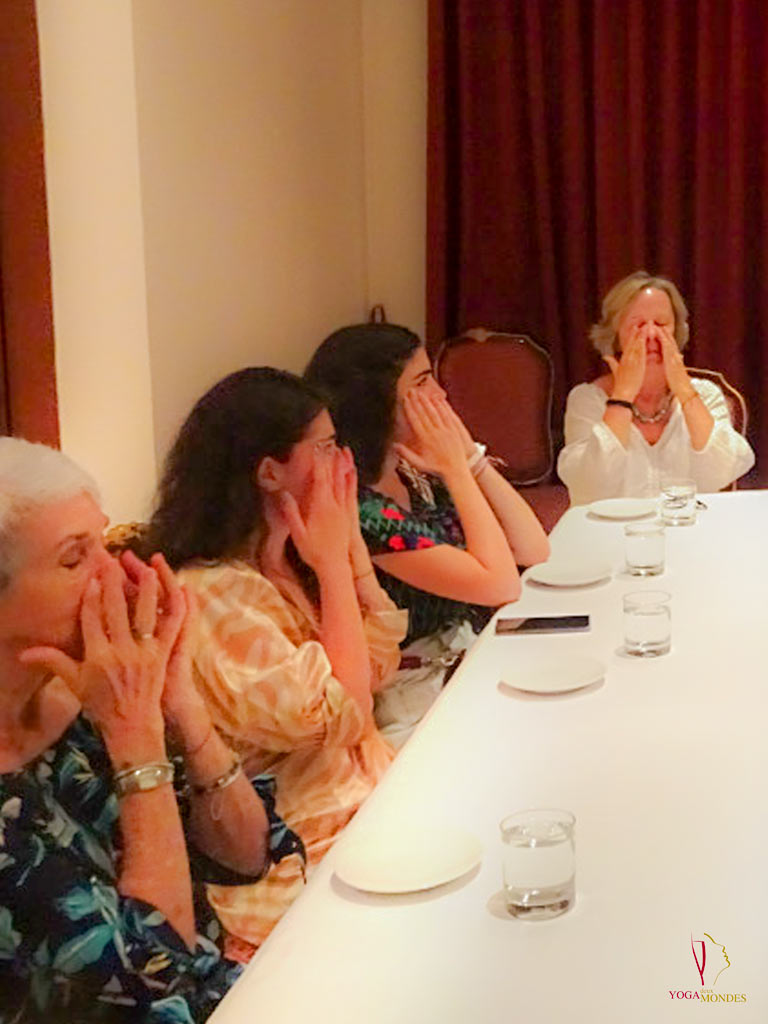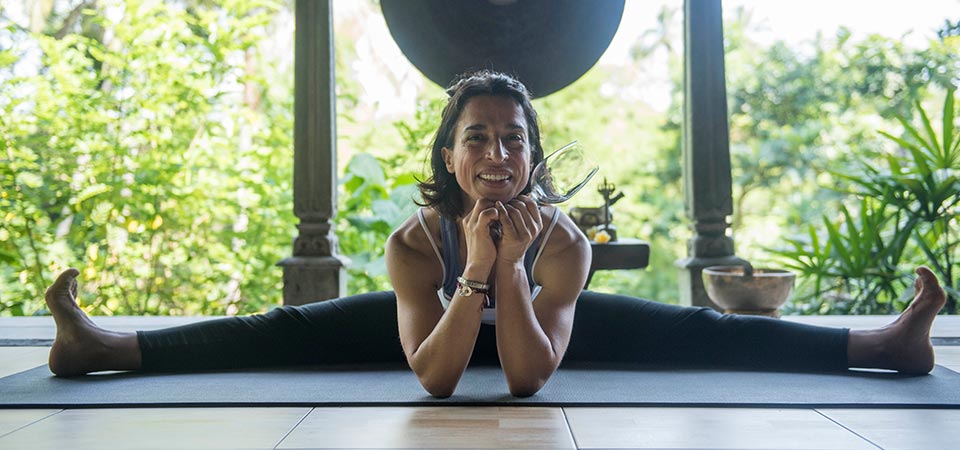Inhalation is most important
by V1nsDeM0 | Yoga & Wine
Temps de lecture : | Reading time : 2 minutes
Inhalation is most important
« If you have ever attended a Yoga class you probably might have noted that your breathing exercises were mainly done with inhalation performed through the nose. Yogis did not know in their time how to scientifically explain the whys and how’s but they knew that nasal breathing associated to other specific breathing techniques were keys to maintain physical well-being whilst also supporting the healthy functioning of brain activities.
To try to keep things clear; the nose contains a gas (Nitric Oxide) which during inhalation is released by the sinus into the nasal cavities. This gas has many beneficial effects such as increasing our capacity to breathe, allowing for a better ingress of oxygen (and Pranaenergy called in Yoga; Prana) and nutrients, promotes better functioning and oxygen ventilation of the lungs etc.
At the beginning of the previous century the work of a renowned Russian scientist Doctor Buteyko already highlighted the many positive effects of the activation of this gas through proper nasal inhalation. Yet, in the last decades a greater interest arose especially amongst scientists and neurologists about the whole importance of nasal breathing and its impact on memory.
The medical field has conducted numerous clinical studies -and still are- to better comprehend the connection between breathing and memory functions and how this can help patients suffering memory loss such as in Alzheimer conditions. What scientists are starting to understand what Yogis intuitively knew; a serious approach to breathing through Pranayama (breathing control) has tremendous benefits. Proper breathing maintains health, sustains learning and improves memory. Yogis insist on calm, slow and fluid breathing for better results. »
For more information on Pause, Breathe, Taste© innovative workshop contact@vinsdeuxmondes.com or visit www.vinsdeuxmondes.com




